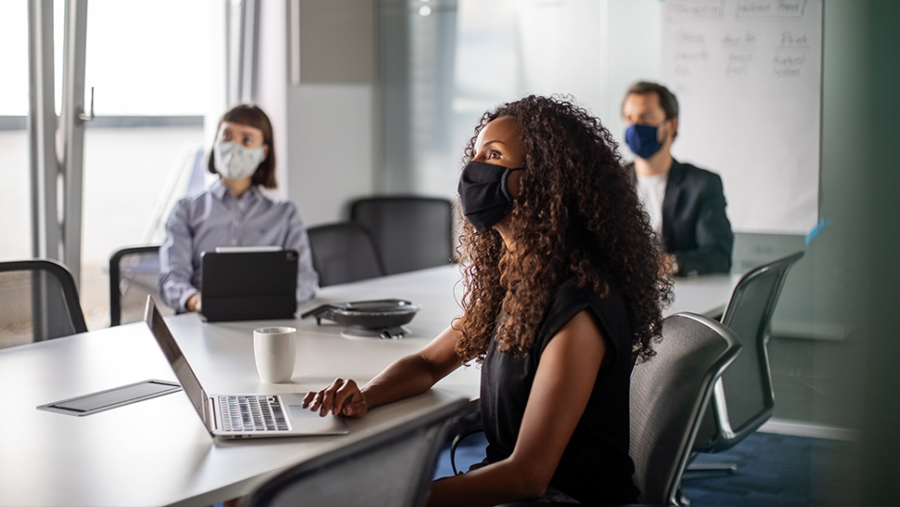

The identification of the Omicron variant of coronavirus has already triggered swift action by the UK government. News of the government’s reaction to Omicron should prompt any responsible employer to review how they are managing the workplace risk presented by coronavirus.
The Health and Safety Executive (HSE) advises on, investigates and prosecutes work-related health and safety risks. The HSE is not a scientific research body. Therefore, for details of the science underlying Covid-19, it refers employers to guidance issued by Public Health England and the governments of the four nations of the UK. The HSE has taken a broad approach and stated that the management of coronavirus transmission in the workplace is the responsibility of employers.
Management of the risk of transmission of Covid-19 through work begins with risk assessment which should still:
- Identify what work activity or situations might cause transmission of coronavirus
- Consider who could be at risk – this could include workers, visitors, contractors, delivery drivers and vulnerable workers
- Decide how likely it is that someone could be exposed and identify the controls needed to reduce the risk
- Involve consultation with the workforce
- Consider whether the workplace has adequate ventilation, sufficient cleaning and good hand hygiene
- Consider other measures to control the risk, such as limiting the number of employees gathering together
There is no point in going to the effort of preparing a risk assessment without implementing, monitoring and supervising to make sure the control measures set out in the final risk assessment are working as expected.
There is a subtle, but important, legal argument on whether the HSE’s broad approach is correct in law. In short, is the transmission of coronavirus truly a work-related risk? There may also be fact or evidence-based arguments about the calculation of baseline risk (and increase or decrease in that risk alleged to be due to control measures).
So far, these points have not been considered by a court and no company is eager to be the first defendant in such a case, given the costs and publicity involved. Adopting the cautious approach of the HSE is probably the wisest and most socially responsible course of action of employers today.
However, inspection of workplaces is often undertaken by freelance inspectors. These inspectors may not be so well-versed in the hierarchy of enforcement that the HSE should follow. Therefore, should your company receive an HSE Improvement Notice or Prohibition Notice, you may want to push back on any assertion that your risk assessed and audited measures have truly failed to prevent the risk of transmission in the workplace. If so, you have to act quickly as the time limit for appealing such notices is a strict 21 days.










